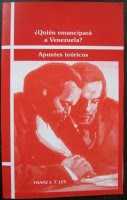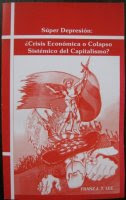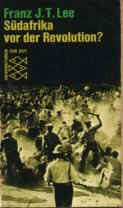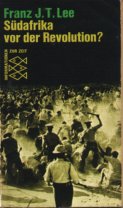Fifth or New International? Preliminary Food for Human Emancipation
By Franz J. T. Lee
Venturing Beyond Bourgeois Revolution to Human Emancipation 3
We welcome the revolutionary efforts of President Hugo Chavez of Venezuela to found a global, effective, functioning workers international. It is not an ad hoc aspiration, not a quantitative endeavor; it is arduous, complex and dangerous. Let us show the historic quintessence of all Marxist Internationals.
1. A revolutionary and emancipatory International concerns what Marx and Engels understood by 'the emancipation of the proletariat, of all working classes, is the work of the workers themselves.'
2. The First (Working Peoples') International (1864-76) has been defined as the "International of Anticipation", that is, the 'praxical' anticipation of the international workers associations that stood on the order of the day for the coming century.
3. A century after the French Revolution, the Second International (1889 - 1914), inspired by Engels, has been determined as the concrete organization of big masses of workers in Trade Unions and Workers Parties, preparing the way for a massive, independent workers' movement.
4. Before it was destroyed by Stalinism, the Third International (1919-36), inter alia, founded by Lenin and Trotsky, has been characterized as the "International of Action", that is, as the fight to establish the world dictatorship of the proletariat.
5. As already declared in the Manifesto of the Communist Party, the Fourth International (1938), founded by Leon Trotsky, is the International Party of the Workers of the World for socialist 'Permanent World Revolution'. This in the spirit of Rosa Luxemburg: Peace means world revolution.
The 'praxical' and theoretical essence of the emancipatory tasks of Trotsky's Fourth International, of permanent world revolution, is the annihilation of all class societies, and therewith of the world market.
In clear text, ... as can be studied in its transitional program, which urgently must be updated to the class struggles in globalization, ... revolutionary Marxism which is anti-capitalism per se, negates and transcends: exploitation of nature and society, political domination, discrimination, genocide and alienation. This is the conditio sine qua non to found any international. The 'young' Marx in 1843 called this objective: human emancipation. Washington DC, globalized corporate imperialism attack all proletarian internationalist efforts with 'military humanism'. Concretely, the Yankee air bases in Colombia, the arms of mass destruction, are pointing at Venezuela to prevent the dialectical jump from Bolivarian Revolution to proletarian permanent revolution, to 'Human Emancipation' (Marx).
Finally, if we do not materialize the concrete international utopian tasks of Marxist permanent revolution, of the Fourth International, ... which include a new logic, new language, new praxis, new theory, new science, new philosophy, the New per se ... then there will be no existential and transcendental difference to previous heroic endeavors. The New (Wo)man is the International.
If ever we would organize a New International, and realize the above transhistoric goals, it will be the very Last International.
By Franz J. T. Lee
Venturing Beyond Bourgeois Revolution to Human Emancipation 3
We welcome the revolutionary efforts of President Hugo Chavez of Venezuela to found a global, effective, functioning workers international. It is not an ad hoc aspiration, not a quantitative endeavor; it is arduous, complex and dangerous. Let us show the historic quintessence of all Marxist Internationals.
1. A revolutionary and emancipatory International concerns what Marx and Engels understood by 'the emancipation of the proletariat, of all working classes, is the work of the workers themselves.'
2. The First (Working Peoples') International (1864-76) has been defined as the "International of Anticipation", that is, the 'praxical' anticipation of the international workers associations that stood on the order of the day for the coming century.
3. A century after the French Revolution, the Second International (1889 - 1914), inspired by Engels, has been determined as the concrete organization of big masses of workers in Trade Unions and Workers Parties, preparing the way for a massive, independent workers' movement.
4. Before it was destroyed by Stalinism, the Third International (1919-36), inter alia, founded by Lenin and Trotsky, has been characterized as the "International of Action", that is, as the fight to establish the world dictatorship of the proletariat.
5. As already declared in the Manifesto of the Communist Party, the Fourth International (1938), founded by Leon Trotsky, is the International Party of the Workers of the World for socialist 'Permanent World Revolution'. This in the spirit of Rosa Luxemburg: Peace means world revolution.
The 'praxical' and theoretical essence of the emancipatory tasks of Trotsky's Fourth International, of permanent world revolution, is the annihilation of all class societies, and therewith of the world market.
In clear text, ... as can be studied in its transitional program, which urgently must be updated to the class struggles in globalization, ... revolutionary Marxism which is anti-capitalism per se, negates and transcends: exploitation of nature and society, political domination, discrimination, genocide and alienation. This is the conditio sine qua non to found any international. The 'young' Marx in 1843 called this objective: human emancipation. Washington DC, globalized corporate imperialism attack all proletarian internationalist efforts with 'military humanism'. Concretely, the Yankee air bases in Colombia, the arms of mass destruction, are pointing at Venezuela to prevent the dialectical jump from Bolivarian Revolution to proletarian permanent revolution, to 'Human Emancipation' (Marx).
Finally, if we do not materialize the concrete international utopian tasks of Marxist permanent revolution, of the Fourth International, ... which include a new logic, new language, new praxis, new theory, new science, new philosophy, the New per se ... then there will be no existential and transcendental difference to previous heroic endeavors. The New (Wo)man is the International.
If ever we would organize a New International, and realize the above transhistoric goals, it will be the very Last International.
















